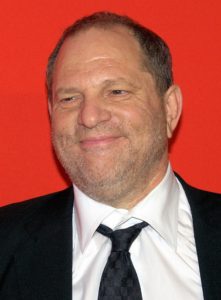Julia Osborn guides us through an eerie tale of The Two Harveys.
We know Harvey Weinsten, the Hollywood predator found guilty of a slew of sex crimes. But not many remember The Other Harvey Weinstein, my husband’s cousin who spent a hellish fortnight in a pit after being kidnapped in an unsettling crime that stopped our family in its tracks.
It was as we lived in an alternative Harvey Weinstein universe. And, back in the early 1990’s, I lived in that world. The world of the other Harvey W.
When our Harvey Weinstein vanished, my husband Marshal and I were enjoying the tranquility of a cabin on Sebago Lake in Maine. We were jolted by an urgent phone call. Harvey’s oldest daughter called with the news that her father had disappeared. Cousin Harvey was, as we knew well, a punctual man of meticulous reliability. The news was terrifying. That night, and for many nights thereafter, I dreamed of Our Harvey chained to a rusty, mattress-less bedframe, unable to summon help.
The next morning, fearing that we would soon be called to Harvey’s funeral, we drove back to New York with our two young children. We turned off the car radio to shield them from the news. In our home, we continued to shield them with the radio and the television off.

The evening family update call became a feared event. Soon, we learned that Harvey had been kidnapped, that an exorbitant ransom was demanded and that negotiations with the kidnappers had begun.
Marshal, who owned a formalwear store and had, at one time, worked in Harvey’s clothing company, was approached by many associates with anxious questions. With the FBI investigating the theory of a business connection to the kidnapping, we were warned to make no comments, public or private. At work, Marshal deflected inquiries. Every evening when the phone rang, we sent our children off to play in the next room before picking up the receiver. We wanted to believe that Harvey, disciplined and smart, could survive whatever he was experiencing. With each day, it seemed less likely.
When Harvey was rescued from the underground pit, grubby and grateful, we rejoiced. He had spent two weeks chained up, existing on fruit and water passed down to him. Soon pundits, psychologists and psychiatrists, consulted by the news media, offered their opinions: Harvey would be damaged, he might never recover, he would need a long time in therapy. A psychologist myself, I worried that they were right.
Yet Harvey, returning to daylight and to life, was filled with thanks. August 17th, the day the police lifted the lid from the kidnappers’ pit and freed him became the day that Harvey chose as his “true birthday.”
From 1994 onward, each August, he gathered his cousins together for dinner and a Mozart concert to celebrate the occasion. We all had fun. Over the years, in comments and conversation, I learned how he had returned emotionally intact, loving his family and rejoicing in the pleasure of being alive.
In college, Cousin Harvey had read a novel, whose protagonist, alone in a cell, faced the daily prospect of execution. Memory of that book, Darkness at Noon, Harvey later said, made him realize that the key to his survival and his sanity lay in controlling the only thing left to him to control, his mind.
He began telling himself, aloud, the story of his life, working chronologically from his earliest memories and recreating vivid details. Freed from the kidnap pit, he made commitments. He would personally write to and individually thank each of his well-wishers; the task took months. He would not profit from his ordeal and he would reject all interviews and offers of movie rights. He would hold his annual birthday party celebrations.
As I reflect upon these memories. I am filled with love and gratitude toward the man who gave me a model to emulate. Fourteen years after Harvey’s kidnapping, in 2007, in August, at the same lovely and peaceful lodge, in a remote cabin with my husband, Marshal, suffered the pain of a delaminating aortic artery. For the next two weeks, I thought of Harvey each time I walked into my husband’s room in the ICU of Maine Medical Center. I told myself I could endure, I could survive and I too, would focus on those things that I could control. I remembered Harvey’s strength, discipline and grace when faced with his own possible death.
My memories of Harvey’s extraordinary response in the face of his mortality sustained me and challenged me to strive for similar grace, strength and love of life as I faced the terrifying prospect of my husband’s mortality.
There are many ironies noted about the case of the two Harveys. Here is a handful. The ‘disloyal’ employee who kidnapped our cousin somehow concluded that our Harvey, the tuxedo manufacturer, was the The Other Harvey, the rich movie mogul. And I later read that one of the other convicted kidnappers hired a lawyer that decades later went on to represent the deviant Hollywood boss.
And the ultimate irony: a man mistakenly kidnapped for sharing a name with an abuser of women was actually a man who served as a model and a guide to me, a woman facing her husband’s death.
Dr. Julia Osborn is a psychologist practising in New York City
.



fascinating and sooooooo weird
Harvey’s approach to survival is the same as the great Viktor Frankl espouses in “mans search for meaning”
Julie I had no idea, what a torment to endure what you have.
You are such a strong person and with a wonderful attitude to what is most important in life.
I take my hat off to you.
Love Rosemary.
Great story